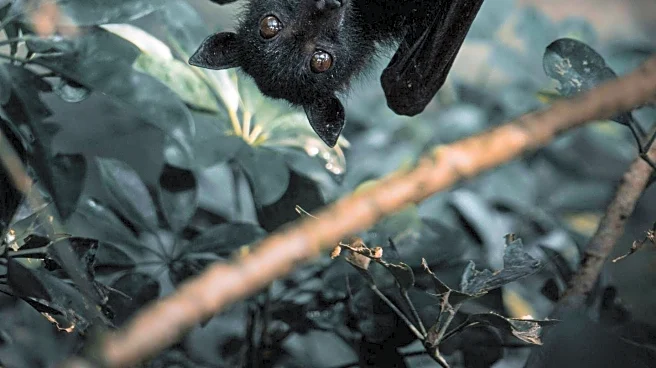What's Happening?
Scottish scientists from the University of Glasgow are addressing the rabies threat posed by vampire bats in the Amazon. The bats, which carry the deadly rabies virus, are biting more humans and livestock
due to climate change impacts. Researchers are developing vaccines and monitoring bat roosts in Peru, Columbia, and Brazil. Rabies is spreading rapidly, with vampire bats moving into new areas, exacerbating the threat.
Why It's Important?
The spread of rabies by vampire bats poses a significant public health risk, particularly in Amazonian regions. Rabies is a lethal disease, and its transmission by bats highlights the intersection of climate change and infectious diseases. The research aims to mitigate the threat by improving understanding and developing preventive measures, which are crucial for protecting vulnerable communities and ecosystems.
What's Next?
The research team plans to continue monitoring the spread of rabies and develop strategies to anticipate vulnerable areas. This includes taking samples from bats and warning communities to take preventive actions. The findings may influence public health policies and climate change adaptation strategies in affected regions.
Beyond the Headlines
The study highlights the broader implications of climate change on wildlife behavior and disease transmission. It underscores the need for integrated approaches to address environmental changes and their impact on human health and biodiversity.










